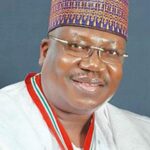By Mercy Aikoye
The Nigerian National Assembly is taking significant steps to promote women’s political participation. Deputy Speaker Benjamin Okezie Kalu announced plans for an international legislative dialogue on women’s issues, scheduled for October 28 in Abuja. This dialogue aims to bring together women worldwide and like-minded Nigerians to discuss increasing women’s involvement in the constitutional amendment process.
According to Kalu, committees in both chambers are working diligently to achieve the first set of alterations by December 2025. He urged consultants and stakeholders to remain committed to meeting Nigerians’ expectations, emphasizing that failure is not an option.
The dialogue is part of a broader effort to increase women’s representation in politics. Kalu noted, “We have to find a way to make it easier for us to harvest their wealth of opinion on national policies and issues.” This initiative aligns with global efforts to promote women’s political participation.
The international legislative dialogue will feature impactful women discussing “Why Not Women?” This event addresses the underrepresentation of women in Nigerian politics. Activities include national public hearings, follow-up retreats, and engagements with state houses of assembly and governors’ forums.
Nigeria’s legislature has promoted gender equity since 1999. The ongoing constitution review process offers an opportunity to further address women’s underrepresentation. UN Women and organizations like iKNOW Politics support training programs for women political aspirants.
Effective representation requires sustained efforts. By prioritizing women’s political participation, Nigeria can tap into women’s experience and perspectives. Kalu emphasized, “History will remember you, you will be remembered as those who crafted the new constitution. You’re writing your name in gold.”
The success of this initiative relies on collective commitment. With the senate aligned with the timeline, Kalu expressed optimism about achieving the first set of alterations by December 2025. This milestone has the potential to reshape Nigeria’s political landscape and empower women to take on leadership roles.



